
Steeped in tradition, the MGB Group’s story spans a 90 plus years journey. Today, from its humble beginnings, it is a formidable force in the world of enterprise and entrepreneurship, with a multi-location presence. Established in the early 20th century, the Group has built a stellar reputation for adhering to ethical business practices, following a sound financial discipline, providing consistent value to customers, and moving in step with changing times.
The history of the MGB Group traces its beginnings to the largest joint family of Yemmiganur. As first generation entrepreneurs, five brothers—sons of a master weaver Machani Somanna—started a small handloom business. The five brothers—Machani Gangappa, Machani Lakshmanna, Machani Pakeerappa, Machani Somappa and Machani Ramanna conducted the business under the adept leadership of Machani Gangappa, the eldest in the family. The primary factor that contributed to the growth and prosperity of the family business was its culture of unconditional obedience to Machani Gangappa, the head of the family. Incidentally, Machani Gangappa was also the head of the weaver’s community, a well-knit majority community in Yemmiganur.
The second brother, Machani Lakshmanna, was in charge of family affairs while the third brother, Machani Pakeerappa, was in charge of the family’s finances and managing its groundnut oil mill, which was equipped with the latest machinery—automatic feeders fitted with elevators and conveyors for crushing and collection of oil helped in maintaining a high quality of oil and cake.
Time has moved on, and while the Group today flourishes in the hands of the family’s second and third generations, it continues to retain the defining principles and values of the close-knit family that it has always been.
By putting people before profits, the Group has also earned widespread respect for engaging in community development and social welfare initiatives. In the sections that follow, the MGB Group invites you to follow its nine decade old journey .
As the twentieth century dawned, Yemmiganur was still a sleepy village in Kurnool district of Andhra Pradesh. The village had an active weaving community but they lacked the necessary marketing prowess to progress their craft. At that time, three of a family of five Machani brothers from the village joined forces to start a small business. As their business began to taste success, the five brothers nurtured dreams of growing the scope of their operations. One among them, however, with inborn leadership qualities, achieved standout results quite early in his career. This was Machani Somappa, who embraced fame not just as an industrialist, but also as an educationist and a social activist. Under Machani Somappa’s leadership, Yemmiganur and its villagers saw advancement in every sphere of their work. Machani Somappa’s astute business sense told him the co-operative route would best serve the needs of the people of Yemmiganur. And slowly but surely, Yemmiganur found itself transforming from a sleepy village into a model township.
He is the shining star of Rayalaseema, and no amount of praise is adequate to do justice to his legacy. His life followed an illustrious path during which—through starting a string of cooperative societies—he transformed Yemmiganur, a sleepy village in Kurnool district of Rayalaseema, into a model township; rose to national eminence as the tallest authority of the handloom weavers’ fraternity; and set up several successful industrial ventures. Rightfully, he was awarded the Padma Shri (Public Affairs) by the Government of India in 1954, in its earliest list of awardees.
Born in 1904, to a master weaver, Somanna Machani, in Yemmiganur, in Kurnool district of Rayalaseema region, Machani Somappa demonstrated exceptional qualities from a very young age. Ingenuity, uncanny foresight, exceptional courage, and an abiding concern for the welfare of his fellow human beings were qualities that made him an entrepreneur and philanthropist, rolled into one. The MGB Group feels privileged to acknowledge him as its patriarch.
A born leader, Machani Somappa adopted the co-operative route to harness the human capital of the village by setting up a string of co-operative societies. The foresight demonstrated in setting up these societies gradually enhanced the economic status of the village, post the famine of 1934 and 1936. As early as 1938, once the government closed down its relief centers for the famine afflicted weavers of Yemmiganur, Machani Somappa formed the Yemmiganur Weavers Cooperative Society (YWCS). The society provided regular work to its member weavers at fair wages, and before long other weavers of Yemmiganur and neighboring villages trooped in to join the society. The society soon became the largest primary weavers’ cooperative society in the country. Over time, the success of the society catapulted Machini Somappa to the very top of the weaver fraternity—as president of the All India Handloom Fabrics Marketing Co-op Society, an all-India entity whose chain of showrooms is the iconic “Handloom House.”
The sound of the weaver’s shuttle is familiar across quiet Indian villages. For long, these villages have produced an abundant variety of handloom fabrics—in bright colors and eye-catching designs— much sought after by foreign tourists and Indians alike. However, in the early days, a limiting factor was the absence of a robust marketing mechanism, which severely restricted availability. It was at this juncture, in 1955, that the All India Handloom Fabrics Marketing Co-op Society was formed, headquartered in Bombay (now Mumbai). The Society’s objective was to relieve the weavers’ community of this deficiency—by ensuring the availability of a wide range of fabrics under one roof, and to encash a vast export potential.
Unfortunately though, the Society struggled in its first two years. That is when Machani Somappa stepped in as its president in 1957. By dint of his foresight, clear thinking and business acumen, Machani Somappa helped the Society to not only turn the corner but tread on a path to eminence that it continues to enjoy even today. The Society attained this position under his astute leadership by opening a chain of retail outlets named Handloom House in six cities—Bombay (now Mumbai), Madras (now Chennai), Bangalore (now Bengaluru), Delhi, Calcutta (now Kolkata) and Ahmedabad. Simultaneously, Handloom House stores were opened overseas—in Singapore, Kuala Lumpur, Aden, Mauritius, Hamburg and Lagos. Besides, export promotion officers were stationed in a number of other countries. Subsequently, the Society opened Handloom House outlets in Hyderabad, Chandigarh, Ernakulum, Baroda, Vishakhapatnam and a second outlet in Bangalore. The Hyderabad outlet, located in a prominent and valuable site secured free of cost through the efforts of Machani Somappa, was named Machani Somappa Bhavan to perpetuate his memory.
Soon Machani Somappa’s innovative management style was on display when he stepped out of the norms of an apex body that only allowed cooperative institutions as members. Keeping the larger objective of betterment of the entire weaver fraternity, he allowed a new class of members—who were not cooperative institutions—to join the Society. This was the “C” class—members who produced handloom fabrics and were entitled to all the benefits of the Society barring voting rights.
Under Machani Somappa’s stewardship the Society saw an exponential growth in turnover and occupied pole position among exporters of handloom goods in the country. Consequently, the Society was recognized as an “export house” by the government of India and it won several national and state level awards on account of its performance.
It was Machani Somappa’s earnest desire that Indian handloom should stamp its position of eminence in the world market. To this end, his intervention in 1957, to defuse a severe setback in the marketing of Madras Handkerchief varieties, is exemplary. Machani Somappa not only arranged for the Society to buy out the entire accumulated stock but also ensured that it was marketed overseas, in the process saving the harassed weavers and earning precious foreign exchange for the country.
It is no surprise then that his matchless capabilities led him to be elected unanimously as the president of the Society for five successive three-year terms until he fell sick.
History tells us that the success of YWCS stoked Machani Somappa’s irrepressible desire to champion the cause of social uplifment and led him to start a flurry of co-op societies in Yemmiganur, namely,
All the societies were recognized for the useful work they did and, over time, moved into their own premises. Legend has it that whatever project Machani Somappa lent his hand to turned out to be a spectacular success because of his “golden touch.”
Simultaneously, being the determined entrepreneur that he was, he moved forward to leverage the handloom sector. In 1940 he established Yemmiganur’s first spinning mill. The move created employment opportunities for the village youth who flocked to the mill in large numbers to seek jobs.
During an acute yarn crisis in 1948, by dint of his foresight and business acumen, Machani Somappa raised capital from weavers and started the Rayalaseema Mills Ltd. in Adoni. The initiative helped to overcome the setback, and benefitted the weavers through direct supply of yarn from the mills’ depots.
There was no stopping the patriarch now, and following the successful venture in Adoni, he pushed further to set up many more:
In 1960, the patriarch of the MGB Group engineered an international collaboration with Stumpp, Schuele GmbH of Germany to manufacture coil and extension springs—a first in the subcontinent at that time. The collaboration was named Stumpp, Schuele & Somappa Ltd and set up its first manufacturing facility in Bangalore. Today, SSS as the company is popularly known, manufactures over 4000 varieties of springs, stampings, and wires in its facilities in India and abroad. It caters to the automotive, textile, electrical and white goods industries.
As the Group’s business continued to grow in size and variety, the patriarch with his philanthropic ideals decided to shift focus to the Group’s charitable programs and enlisted the services of his younger brother, Machani Ramanna, to oversee the everyday running of the Group’s entrepreneurial ventures.
With guidance from his elder brother Machani Somappa, the protege Machani Ramanna, started to further expand the Group’s business by adding on new ventures. He added passenger transportation, a fleet of lorries for parcel service; full-fledged automobile workshops in Bellary, Kurnool, and Nellore in the name of M G Bros.
The automobile workshops led to further expansion of the M G Bros business through the addition of prestigious agency lines such as the Tata Mercedes Benz (chassis for lorries and buses), Massey Ferguson tractors, and Royal Enfield motorbikes.
Under Machani Ramanna’s care the Group’s businesses entered a phase of further growth, enlarging its diversity as well as its footprint.
In the sphere of social service and philanthropy too, Machani Ramanna led from the front, serving as the president of the Panchayat Samithi between 1964 and 1984. During his tenure he introduced intensive irrigation facilities, setting up of many schools, and laying of village roads. In that period, the Samithi also made outstanding progress in the field of agriculture. And, thanks to its splendid achievements, the Samithi was the recipient of a number of awards—the Krish Pandit award in 1965 and 1966, prize of an Escorts tractor, and cash awards in 1967 and 1968, and a number of State awards for achieving higher yield of paddy per acre.
One more significant development during his tenure saw the Samithi successfully develop Sea-Island Cotton, a long-fiber staple variety of irrigated cotton. The outcome caught the eye of the Cotton Federation of India. After a study and a report based on it, the federation extended support by deputing its senior personnel to work with the Samithi to gain knowledge about the cultivation of irrigated cotton. Through this experiment, the federation concluded that cultivation of irrigated cotton on a large scale was indeed possible. Further, the experiment helped them to develop pest control techniques.
In 1984, with a view to safeguard the Group’s business interests and an eye on future growth, Machani Ramanna, at the helm of the Group’s affairs, stepped forward with his plan to specifically apportion and realign the group’s businesses. Accordingly, the Group’s business was divided among his own children and that of his three other brothers— Machani Lakshmanna, Machani Pakeerappa, and Machani Somappa. Machani Gangappa, their eldest brother, had no legal heirs.
With Machani Ramanna’s move to realign the family’s business, in 1985, Shri Gangadhar took charge of what is today the MGB Group, as its managing partner. At that time, his inheritance comprised just three automobile dealerships—Telco in Nellore, Ongole and Chittoor; Royal Enfield in Nellore (till 1986); and TAFE in Nellore, Chittoor and Guntur (till 1992).
Since 1994, Mr. Gangadhar has been operating as the managing director for the businesses that came into his share but, significantly, has vastly expanded them in size as well as added new ventures.
A trail and a legacy that is both exciting and inspiring, is the journey of the MGB Group—a nine decade old journey of visionary thinking, enterprise and entrepreneurial acumen. The act of looking back into the past not only gives today’s MGB-ites a feeling of euphoria, it also serves as their guiding light in the discharge of their daily duties. The stories of the Group’s founding fathers are replete with exemplary entrepreneurial excellence and inborn leadership, albeit from very humble beginnings. We invite you to relive the various phases of the Group’s memorable journey, dotted with numerous milestones…
The beginning dates back to 1915, when three of a family of five Machani brothers (residents of Yemmiganur, a village in Kurnool district)—Gangappa, Lakshmanna, Pakeerappa, Somappa and Ramanna—joined forces to start a small business. The master weaver Gangappa, assisted by his two younger brothers Lakshmanna and Pakeerappa, started supplying fabrics to various places in and around Karnataka like Mysore, Hassan, and Sakaleshwara.
As they began to taste success and gain in confidence, 1928 saw them scaling up their small trading business by forming the M G Group, named after the eldest brother Machani Gangappa. A passenger bus service was launched for the first time in Yemmiganur, with a fleet of coal fired steam engine buses. The service was named Sri Neelakanteshwar Swami Motor Service and plied an interstate route between AP, TN and Karnataka. The Group’s ethical business approach saw the fleet quickly grow to 50 buses.
In step with changing times, the M G Group continued to expand its business and in 1936 it acquired the dealership for SVOC (Standard Vacuum Oil Company) to serve Bellary and later added Kurnool to its operations. As its business interests expanded, through their experience, the Group realized the value of sound financial discipline, which they applied single mindedly to all their businesses.
On an expansion mode, the 1940s saw the Group expanding rapidly by adding several dealerships to its portfolio:
Thanks to the M G Group’s broad business outlook, Yemmiganur got its first edible oil (groundnut) mill in 1955.
Spreading wings: the 1960s and ’70s
Through the 1960s and ’70s, the M G Group continued to spread its wings by making significant additions to its portfolio.
In the 1960s, agriculture and farming activities in and around Yemmiganur became a major focus area—dairy farming, crop cultivation like cotton, ground nut, paddy, chilly and other vegetables, as well as horticulture earned the Group both fame and recognition.
On the other hand, the Group continued to add more dealerships in the automobile and petro products categories.
Dealership for Massey Ferguson–TAFE tractors opened up in 1960 in Bellary, Kurnool, Kadapa, Ananthapur, Chittoor, Guntur, Ongole, and Nellore.
A landmark achievement in the M G Group’s history was the establishment of Stumpp, Schuele & Somappa Pvt Ltd in 1960, in Bangalore, in collaboration with Stumpp, Schuele GmbH Germany. Today, SSS, as the company is popularly known, manufactures over 4000 varieties of springs, stampings, and wires in its 12 plants located in India and North America. It is India’s No.1 spring maker and caters to the automotive, textile, electrical and white goods industries. It has ISO 9001, ISO 14001, TS 16949 and Ford Q1 Certification.
During this period, the M G Group forayed into other businesses such as ESSO – HPCL dealerships (Yemmiganur, 1962; Guntur, 1967); an electronics manufacturing unit, Nippon Electronics Pvt Ltd. in 1968 and tire retreading facilities in Bellary, Raichur and Kurnool during the 70s.
1969 saw the launch of MG Brothers Lorry Service, which covered destinations across India. A separate passenger transportation service with a fleet of 50+ buses— MG Brothers Passenger Transportation—was also started to cover destinations in Tamil Nadu, Karnataka and Andhra Pradesh.
Post this phase of expansion, the Group’s focus shifted to consolidating its various businesses. The goal, however, was to achieve greater growth.
In 1984, with a view to future growth, Machani Ramanna, at the helm of the Group’s affairs, stepped forward with his plan to realign the Group’s businesses by specifically apportioning and allocating them between members of the Machani family, including his three sons, M R Ganganna, M R Ramesh and M R Gangadhar. Thus began a new chapter in the story of the Group’s milestone laden journey.
1986 saw the launch of the TVS-Suzuki dealership in Nellore (till 1992) and it was followed in 1992 with the dealership of Bajaj two-wheelers in Chittoor and Nellore. Customers thus got an opportunity to acquire the latest models of these top line brands.
In 1998, the Group identified opportunities in an emerging but fast growing segment—aqua and scampi culture. The Group launched its aqua feeds division by taking up dealership of leading brands with operations located in Nellore and Gudur.
In 2000, the Group forged ahead by including dealership for TATA Motors cars in Nellore and Chittoor (till 2012).
In 2002, the Group further diversified its portfolio by launching its real estate division. Today, its operations are spread across 10 locations in South India— Adoni, Bengaluru, Chittoor, Eluru, Kurnool, Nellore, Tirupati, Vijayawada, Vishakhapatnam, and Yemmiganur.
In 2004 and 2005, the Group expanded its HPCL dealership to cover Ongole and Nellore. In 2005, the Group expanded its operations further by opening a dealership of TAFE tractors in Vijayawada.
In 2006, the Group received the prestigious ISO certification from BSI, India. The same year saw the launch of the Group’s passenger car division for TATA cars in Tirupati (till 2012).
As the infrastructure sector stepped into an ascending curve, in 2010 the Group launched its dealership of TATA HITACHI’s earth moving equipment in Nellore, Chittoor, Ongole, Kadapa and Ananthapur.
In 2011, came yet another division—the Group launched its construction division to cater to the boom in real estate.
2012 saw the Group adding two more dealerships—one for Bajaj two-wheelers in Tirupati and the other for Chevrolet passenger cars in Nellore, Chittoor and Tirupati (till 2017).
In 2016, the Group forayed into retail with the launch of MGB Felicity Mall. The mall is housed in a building with six floors, totaling 320,000 sq. ft. It offers visitors everything from multi-brand shopping, to gaming, to entertainment and a food court spread across 15,000 sq. ft. At the mall, the Group has franchisee outlets for Cream Stone (an ice-cream boutique) and Max Fashion store.
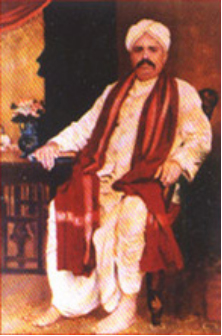
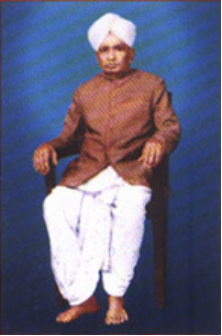
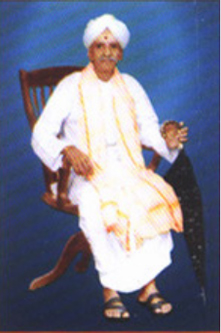
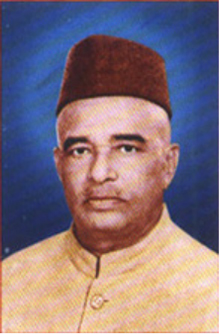
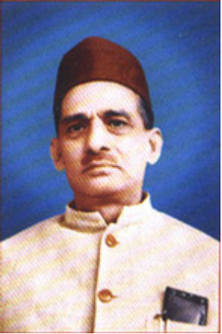

Pictures of the foundation stone laying ceremony and different stages of construction of the MGB Group’s premises that came up in Dargamitta several decades ago. Over the years, the premises have housed several ventures of the MGB Group—from dealerships of TATA commercial vehicles and TAFE tractors, to Tata cars and Bajaj two-wheelers. The dealerships have since made way for the Group’s latest venture, the MGB Felicity Mall.

